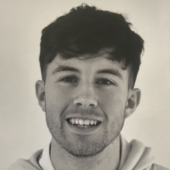
Sam Phelps
Commissioning Editor, International Affairs
Sam began his media career shortly after graduating in Economics from the University of Leeds in 2021, when he undertook a position as Green Mobility Policy Editor at Ibex Publishing. He wrote on topics pertaining to transport and energy sustainability. His interests are in the application of economics to environmental and policy issues.
Less ![]()
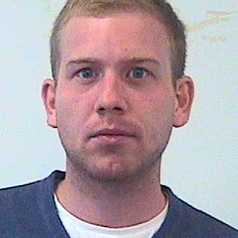
Sam Power
Samuel is an ESRC funded doctoral researcher based in the Sussex Centre for the Study of Corruption (SCSC) interested in party funding regimes and corruption in Western Europe.
His thesis is titled: Party Funding Regimes and Corruption: Linkages, Relationships and Trends.
The research is a comparative study of three advanced democracies in Western Europe (Denmark, France and the UK) and investigates whether a certain type of party funding regime (e.g. public or private funding) leads to the prevalence of a certain type of corruption.
There has been little research - academic or otherwise - which attempts to investigate these linkages, the hypothesis is that certain types of party funding regime are not necessarily more corrupt than other types; but that perhaps different types of corruption occur in different types of party funding regime. It is important to understand more about how democracy is funded and how that might lead to specific types of corrupt practices.
Less ![]()
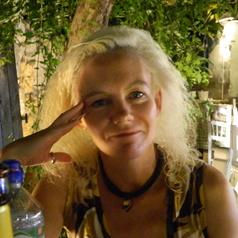
Sam Poyser
Lecturer in Criminology, Aberystwyth University
Sam is a senior lecturer at Aberystwyth. She specialises in miscarriages of justice, media portrayal of victims and the more general experiences of victims of crime, including victims of animal abuse, farm crime, rural crime and wildlife crime.
Sam's primary area of research is miscarriages of justice and she has published extensively within this field. Her most recent research for her PhD thesis, entitled 'Watchdogs of the wrongly convicted: the role of the media in revealing miscarriages of justice', investigated the role of journalists in revealing wrongful convictions in England and Wales from the 1960s through to the present day.
Sam's research in this area, is in part driven by Walker and Starmer's (2002) rights-based theory of miscarriages of justice, (thereby adopting a broad definition of the phenomenon to include, not only wrongful convictions, but many other forms, including failures on the part of the CJS to act/ 'do enough' in criminal cases). It is also driven by the notion that victims of miscarriages of justice are 'voiceless victims'. This focus, has more recently led to her increasing interest in another, much neglected group of 'victims', namely victims of animal abuse, wildlife crime, farm crime and rural crime in England and Wales.
Less ![]()

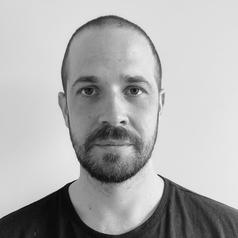
Sam Ryan
PhD Candidate, Literary Studies, University of Tasmania
am Ryan is an emerging critic and early career researcher. He is a PhD candidate at the University of Tasmania, where he is working on a thesis on the poetry in Overland and Quadrant. More broadly, he is interested in the genre of literary journal and its place in literary cultures. He has worked in publishing – in various functions – for more than a decade. He is Overland’s digital archivist and has a firm belief in the importance of digital preservation of literary journals. He has written for the Australian Journal of Biography and History, the Australian Book Review, Cordite, and The Conversation.
Less ![]()
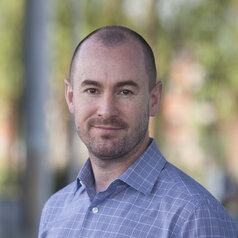
Sam Sellar
Professor of Education Policy, University of South Australia
Sam Sellar is a Dean of Research and Professor of Education Policy at the University of South Australia. Sam’s research focuses on education policy, large-scale assessments and education technology. He is currently co-investigator for an Australian Research Council grant titled Artificial intelligence in education: Democratising policy. He has also recently published a book titled Algorithms of Education: How datafication and artificial intelligence shape policy, co-authored with Kalervo N. Gulson and P. Taylor Webb.
Less ![]()


Sam Victor
Postdoctoral Research Fellow, Department of Anthropology, McGill University
I'm a cultural anthropologist specializing in religion, ethics, and strategies of influence. I use my training as an ethnographer to make sense of situations where people find themselves pulled between conflicting commitments. I'm co-editor of the special issue "Religious Suasion" (Journal of the Royal Anthropological Institute, 2024). My current work analyzes how moral values shape economic action in the social innovation sector.
Less ![]()

Sam Wylie
Associate Professor Sam Wylie is Principal Fellow of the Melbourne Business School.
His research and consulting is focused on the investment management and hedge fund industries, especially performance measurement and incentives.
In 2005 Dr Wylie’s work was published in the University of Chicago’s Journal of Business.
He was an Assistant Professor at the Tuck School of Business from 1997-2004. The Tuck School, is one of the world’s leading business schools, being ranked #1 in world by the Wall Street Journal in 2006. Dr Wylie’s courses at Tuck were regularly rated among the best at a school renowned for teaching excellence.
Dr Wylie obtained his PhD from the London Business School. He also has a Master of Economics degree from the Australian National University and a Bachelor of Engineering degree from the University of Western Australia.
From 1986-1992 he was an Intelligence Officer with the Australian Security Intelligence Organisation. Dr Wylie is married and has three young children.
Less ![]()
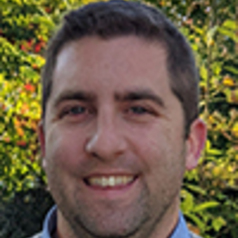
Sam D. Hayes
Visiting Assistant Professor of Political Science and Public Policy and Law, Trinity College
Sam Hayes is a Visiting Assistant Professor at Trinity College in the departments of Political Science and Public Policy and Law for the 2023-2024 academic year. He completed undergraduate degrees in political science and journalism at the University of Massachusetts Amherst and earned his PhD in political science at Boston College. During and following graduate school, Sam also taught at Wheaton College and Colby College, with classes on law, politics, voting rights and political geography. These courses used small class sizes and interactive methods to combine philosophic inquiry with practical applications. Sam studies American government and public law with research on the U.S. federal courts, electoral institutions, state and local politics, and political geography. Sam enjoys hiking, cycling, and spending time with family and friends, especially his wife Deidre and their daughter Lucy.
Less ![]()
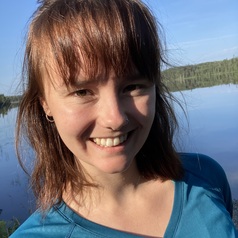
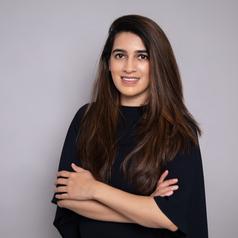
Samah Shaffakat
Senior Lecturer Work, Organisation and Management, University of Liverpool
I am a senior lecturer in Organizational Behavior at the University of Liverpool Management School. Prior to joining the University of Liverpool Management School, I held a lecturership at LJMU and a postdoctoral position at INSEAD. My research interests are in the areas of leadership, leadership development, mindfulness, psychological contracts, change management, emotions and personality.
Less ![]()

Samantha Abbott
Doctoral Researcher, Department of Sport Science, Nottingham Trent University
Less ![]()

Samantha Bennett
Professor of Music, Australian National University
I am Professor of Music and Associate Dean Higher Degree Research at the Australian National University, Chair of the International Association for the Study of Popular Music, and Principal Fellow of the Higher Education Academy. I am the author, co-author, and co-editor of six books including: Gear: Cultures of Audio and Music Technologies (The MIT Press, 2024, co-authored with A/Prof Eliot Bates); Secrets and Revelation in Music and Audio Technology Cultures (Cambridge University Press, 2024); Modern Records, Maverick Methods (Bloomsbury Academic, 2018); Siouxsie and the Banshees' Peepshow (Bloomsbury Academic, 2018); Critical Approaches to the Production of Music and Sound (co-edited with A/Prof Eliot Bates, Bloomsbury Academic, 2017); and, Popular Music, Stars and Stardom (co-edited with Dr Stephen Loy and Dr Julie Rickwood, ANU Press, 2018).
https://anu-au.academia.edu/SamanthaBennett
https://researchers.anu.edu.au/researchers/bennett-sk
Less ![]()
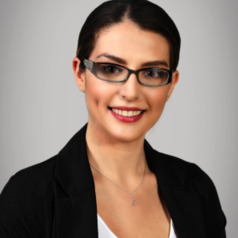
Samantha Burns
Ph.D. Student, Developmental Psychology and Education, University of Toronto
Ph.D. student focusing on access to and quality of early childhood education and care settings in Canada. Moreover, how these experiences shape the development of young children.
Less ![]()

Samantha Chan
Immunology and Allergy Lead, Snow Centre for Immune Health, WEHI (Walter and Eliza Hall Institute of Medical Research)
Less ![]()
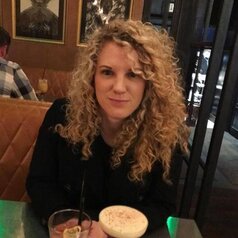
Samantha Colling
Senior Lecturer in Film and Media, Manchester Metropolitan University
Samantha Colling is a Senior Lecturer in Film and Media and has been teaching in the field for more than ten years.
She completed her PhD, which explored the relationships between film, pleasure, and affect, at The Manchester Institute for Research and Innovation in Art and Design, her Masters in Screen Studies at the University of Manchester, and her BA (Hons) Drama at the University of Hull.
Samantha’s monograph The Aesthetic Pleasures of Girl Teen Film (2017) explores new ways of thinking about pleasure and fun in relation to film, with a particular focus on millennial girl teen films and the kinds of affects that they are designed to create. She has a forthcoming chapter ‘Feeling Like a Teenage Lesbian: the sex scenes in The Miseducation of Cameron Post (2018) and Make Up (2019)’ in Screening Sex: The Sex Scene – Representation, Performance, Aesthetics and is currently working on a project titled Sex in Reality Television: 2000-2020.
Less ![]()
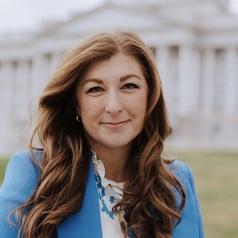
Samantha Dodson
Postdoctoral Research Fellow, Sauder School of Business, University of British Columbia
I am currently a postdoctoral fellow at the Montalbano Centre for Responsible Leadership Development in the Sauder School of Business at the University of British Columbia and will be joining the Haskayne School of Business at the University of Calgary as an assistant professor in the Fall of 2024. She received her PhD from the University of Utah. My research broadly focuses on how employees’ cognitions and emotions affect their interpersonal outcomes, with an emphasis on understanding the causes, consequences, and alleviation of women’s distress in organizations. I have published in major outlets in the management and psychology fields, including the Journal of Organizational Behavior and Organization Science.
Less ![]()
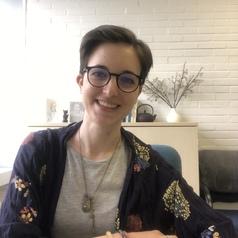
Samantha Fazekas
Teaching Fellow in Political Philosophy, Trinity College Dublin
Samantha Fazekas is a Teaching Fellow in Political Philosophy at Trinity College Dublin. She has taught at the Philipps-Universität Marburg, Germany; Dublin City University; and Trinity College Dublin.
Her research areas are in political and moral philosophy, Kantian and post-Kantian philosophy. Samantha also enjoys teaching ancient philosophy and environmental ethics.
Samantha completed her Ph.D. at Trinity College Dublin in 2023. Her Ph.D. thesis justifies Hannah Arendt's appropriation of Immanuel Kant's aesthetic judgment as a model for political judgment. She is currently preparing it for publication.
Samantha received her M.A. in philosophy from Boston College in 2017; and her B.A. in philosophy from Loyola University Maryland in 2015.
Less ![]()
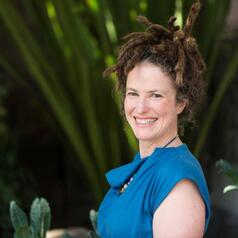
Samantha Grover
Senior Lecturer, Environmental Soil Science, RMIT University
Soil scientist, connector, creator; seeking sustainable solutions to social ecological challenges by combining technical innovation with deep stakeholder engagement.
Less ![]()
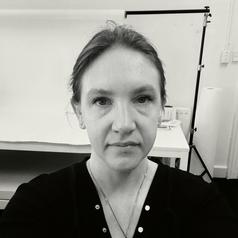
Samantha Happé
Graduate researcher in art history and material culture studies, The University of Melbourne
Samantha Happé (she/her) is a graduate researcher and sessional tutor at the University of Melbourne, and a research officer at the Australian National University.
Samantha’s current research project studies the role of the gift in negotiating diplomatic relationships between France and non-European nations during the reign of Louis XIV. Her doctoral thesis examines the diplomatic gifts and material culture surrounding the Persian embassy to Versailles in 1715.
Less ![]()

Samantha Holmes
Research Associate at the Centre for Applied Human Rights, University of York
Samantha joined the Centre for Applied Human Rights (CAHR) in September 2023 as the Generating Respect Hub Coordinator and Research Associate. The Hub focuses on enhancing norms compliance in armed conflict through innovative socio-legal research. She is also a Researcher for the Watchlist on Children and Armed Conflict – a network that strives to end rights violations against children in war zones.
Samantha completed her LLM in International Human Rights Law and Practice at the University of York in 2023 and she also holds an LLB from Queen Mary University of London. Prior to joining CAHR, Samantha conducted human rights practice for organisations in Southeast Asia. She was the Asia Advocacy and Communications Officer for ARTICLE 19 (2021 - 2022) and a Legal Consultant for the Cambodian Center for Human Rights (2019 - 2021). Samantha also provides consulting services to local and international non-governmental organisations on the human rights situation in Cambodia, specialising in advocacy through engagement with UN mechanisms.
Samantha was awarded the CAHR Scholarship 2022/23 and during her studies was a recipient of the Sam Pegram Human Rights Placement Award for commitment to reflexive human rights practice and centering the voices of those involved. Her completed research projects include qualitative and quantitative legal research into fundamental freedoms compliance in Cambodia, group research into the realisation of disabled people’s rights and the prevention of terrorism in York, and independent research into strategic lawsuits against public participation and lawfare in Cambodia. She has also been published in The Diplomat and the Southeast Asia Globe.
Less ![]()
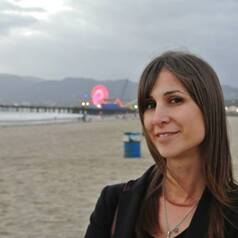
Samantha Marsh
Senior Research Fellow in Public Health, University of Auckland, Waipapa Taumata Rau
Samantha is a senior research fellow in the Department of General Practice and Primary Care and has been a faculty member within the School of Population Health since 2016. Samantha's research focusses primarily on the health and well-being of children and adolescents, including topics around sleep, social media use, play, and immunisation.
Less ![]()

Samantha Monk
PhD Student, Department of Kinesiology, University of Windsor
Samantha Monk received her MHK in Applied Human Performance from the University of Windsor in 2020. Currently, she is a PhD Student in the Department of Kinesiology at the University of Windsor, working within the Community Health, Environment, and Wellness (CHEW) Lab. Her research interests lie in supporting the health and wellness of fellow Canadians by investigating environmental influences on health outcomes through multidisciplinary, community-based research, with an emphasis on problematic social media use among youth. Her current research is focused on lifestyle outcomes of social media influencers, and career guidance for high school students who desire a career in social media influencing.
Less ![]()
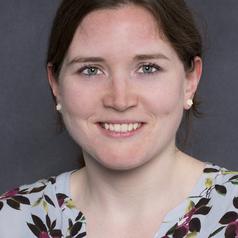
Samantha Montague
Postdoctoral Research Fellow, Institute of Cardiovascular Sciences, University of Birmingham
Dr Samantha Montague is a research fellow in the Birmingham Platelet Group at the Institute of Cardiovascular Sciences. She is supported by the British Heart Foundation.
Dr Montague’s background is in exploring platelet activation and function in thromboinflammation. Her current research is investigating platelet activation and signalling of tyrosine kinase receptors, including the platelet receptor FcgRIIA.
Less ![]()

Samantha Mynhardt
Molecular biologist, Stellenbosch University
I am a molecular biologist, and my research interests lie broadly in vertebrate evolution, diversification and conservation. I am interested in the way in which species evolve and diversify over time and over geographical landscapes. I am an avid conservationist, and find fulfilment in generating information that can assist in the conservation of threatened species. My current research focuses on developing and advancing environmental DNA (eDNA) research, as an emerging approach to studying cryptic or endangered species, and as a broadly applicable approach to biodiversity assessment and biomonitoring. I am a highly inquisitive and enthusiastic person, and am driven to pursue novel ideas and innovative approaches to answering questions and solving problems. I believe that my eDNA research is at the forefront of conservation genetics research in South Africa, and has the potential to revolutionise conservation science and practice.
Less ![]()
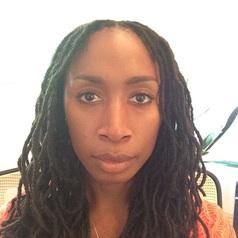
Samantha Noël
Associate Professor of Art History, Wayne State University
Samantha A. Noël is an Associate Professor of Art History and the Hawkins Ferry Endowed Chair in Modern and Contemporary Art at Wayne State University. She received her B.A. in Fine Art from Brooklyn College, C.U.N.Y., and her M.A. and Ph.D. in Art History from Duke University. Her research interests revolve around the history of art, visual culture and performance of the Black Diaspora. She has published on Black modern and contemporary art and performance in journals such as Small Axe, Third Text and Art Journal and has articles forthcoming in the journals October, Latin American and Latinx Visual Culture, and Third Text. Noël has also contributed essays to exhibition catalogues as well as chapters to the following edited volumes: Carnival is Women: Feminism and Performance in Caribbean Mas’ and Transnational Belonging and Female Agency in the Arts.
Noël’s book, Tropical Aesthetics of Black Modernism (Duke University Press, 2021), offers a thorough investigation of how Caribbean and American artists of the early twentieth century were responding to the colonial and hegemonic regimes through visual and performative tropicalist representation. It privileges the land and how a sense of place is critical in the identity formation of early twentieth-century artists as well as their creative processes. By proposing an alternative understanding of the tropics, this book demonstrates how Aaron Douglas, Wifredo Lam, Josephine Baker, Maya Angelou, and some masqueraders and designers of Trinidad Carnival effectively contributed to the development of Black modernity, and even Black sonic modernity.
Noël is working on a second book tentatively titled Diasporic Art in the Age of Black Power. This book seeks to examine the impact of the Black Power Movement on visual art as it emerged in the political, historical, and social contexts of the United States of America and the Anglophone Caribbean in the 1960s and 1970s. In particular, it aims to identify instances in which the iterations of the Third World Left in the United States and the Caribbean crossed paths and determined a need for internationalism in black creative expression during the 1960s and 1970s that worked in tandem with the political radicalism of that era.
Noël was the 2021-2022 Smithsonian Terra Foundation Senior Fellow in American Art at the Smithsonian American Art Museum. Her research has also been supported by the Center for Advanced Study in the Visual Arts at the National Gallery of Art, the Andrew W. Mellon Foundation, and the Moreau Postdoctoral Fellowship at the University of Notre Dame. At Wayne State, Noël has received the College of Fine, Performing and Communication Arts Faculty Creative/Research Award, the Wayne State University Humanities Center Faculty Fellowship, the Wayne State University Office of the Provost’s University Research Grant, and the 2023 Arts and Humanities Research Support Award from the Office of the Vice President for Research.
Less ![]()
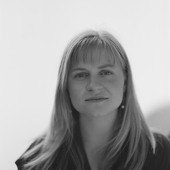
Samantha O'Donnell
Research Fellow, the ARC Centre of Excellence for the Elimination of Violence Against Women (CEVAW), The University of Melbourne
Less ![]()

Samantha Punch
Professor of Sociology, University of Stirling
My PhD was an ethnographic study of rural childhoods in Bolivia. I carried out research in Childhood Studies for 20 years and in 2013 I switched to researching the sociology of bridge, the card game. With a team of researchers and several projects relating to the sociology of mindsport, we have set up ‘Bridge: A MindSport for All’. This work is contributing to the development of a new academic field, Mindsport Studies, which sits between sport studies and leisure studies.
Less ![]()
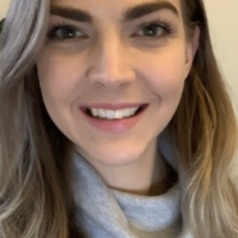
Samantha Reeve
Course Chair and Lecturer, Bachelor of Dermal Sciences, Victoria University
Samantha Reeve is the course chair and lecturer for the Bachelor of Dermal Sciences at Victoria University.
Less ![]()
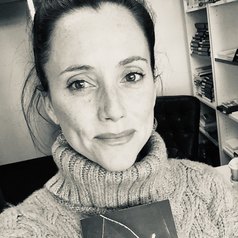
Samantha Schulz
Senior Lecturer, University of Adelaide
Dr Samantha Schulz is a senior sociologist of education at The University of Adelaide with expertise in race critical theorising, First Nations Education, culturally responsive schooling, gender equity, and decoloniality.
Less ![]()
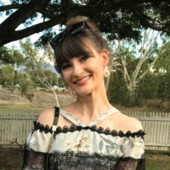
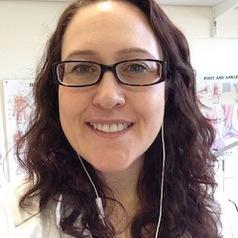
Samantha Tipper
Senior lecturer in Forensic Anthropology, Anglia Ruskin University
Dr Samantha Tipper is a biological and forensic anthropologist with over 15 years of experience working in both the commercial and academic sectors in human osteology, paleopathology, forensic anthropology, and forensic science in both the UK and USA. Samantha has collaborated on projects involving skeletal remains dating from the Bronze Age to Medieval period in Britain as well as skeletal remains from Sudan. She continues to collaborate on both archaeological and forensic cases and is a forensic anthropologist team member at Blake Emergency services. Samantha is also currently an associate fellow in the History and Heritage department at the University of Lincoln, chair of the University of Lincoln Archaeology group and treasurer for the Norton Disney Archaeology Group.
Less ![]()
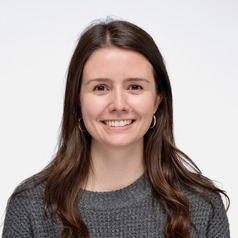
Samantha Vigil
Ph.D. Candidate in Communication, University of California, Davis
Samantha L. Vigil is a PhD student in the Department of Communication at the University of California, Davis. Samantha studies childhood and adolescent media usage as it relates to human development, with a specific interest in examining and informing public policy in this area.
Less ![]()

Samantha Vlcek
Lecturer in inclusive education, RMIT University
Dr Samantha Vlcek is an academic in Inclusive Education. She has been employed across a range of research and teaching positions, within primary schools and the tertiary sector. Sam’s research and teaching interests focus on investigating relationships between key stakeholders in the education of students with diverse needs, and developing innovative strategies for improving collaborative partnerships between teams. Through a systems approach lens, Sam’s research examines education systems to understand dependent, independent, and interdependent variables influencing the experiences, perspectives, and priorities of internal and external stakeholders at each level of the education system.
Sam's research has explored funding models for students with diagnosed and imputed disability, the Nationally Consistent Collection of Data on School Students with Disability (NCCD), the National Disability Insurance Scheme (NDIS), as well as teacher decision-making for use of evidence-based practices to support students' opportunities and outcomes. Her research focuses on equitable practices for all students, with a specific emphasis on the rights of students with disability and students facing forms of educational disadvantage, such as students living in out of home care arrangements and students from diverse cultural backgrounds. Sam's expertise expands into gifted and talented education and the roles and responsibilities of teachers and school leaders for developing, implementing, and reviewing appropriate educational adjustments to ensure equitable access, participation, and opportunity for every student.
Sam is a member of the Consortium of Inclusive Teacher Education and Development (CITED) network of international inclusive education academics, practitioners, and advocates. She is proud to promote the rights for all students in Australia and abroad to receive equitable educational experiences and outcomes.
Less ![]()
- Market Data


















